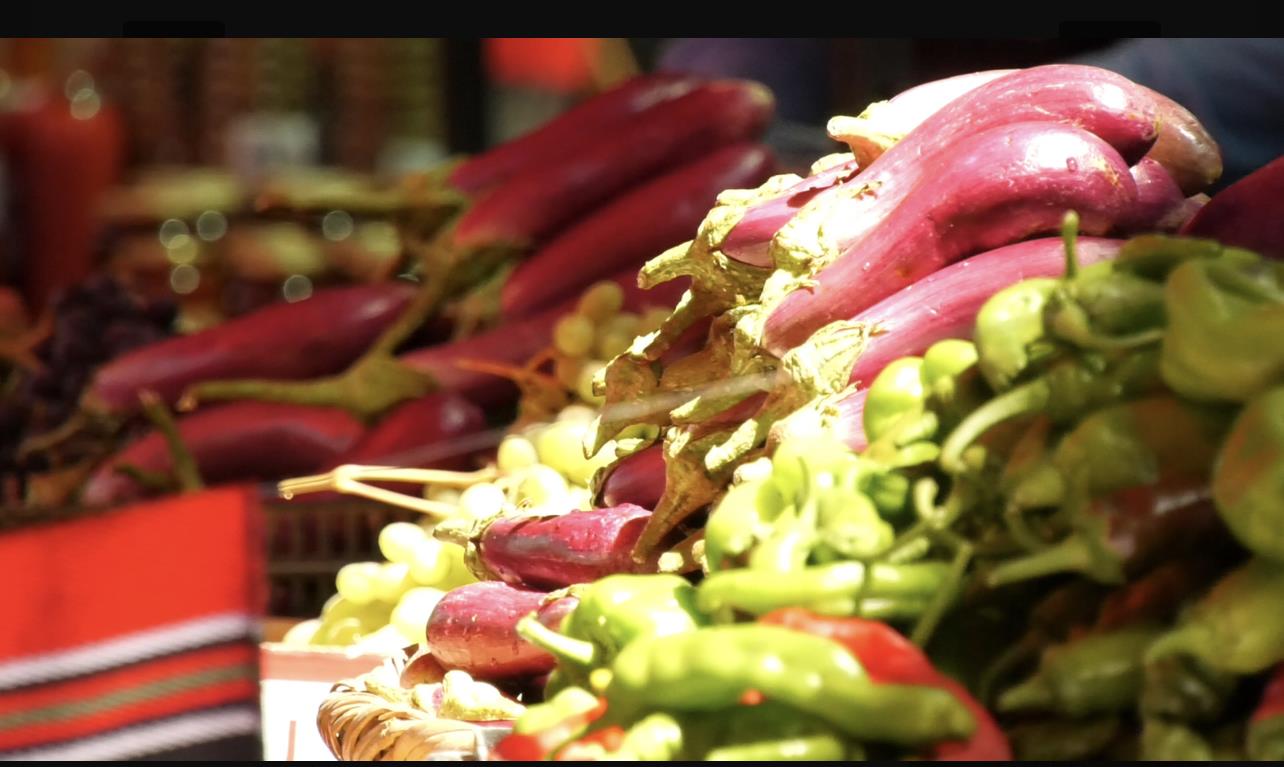(MENAFN- Palestine News Network )
Bethlehem/PNN/The famous terraces of Battir hosted in August the Eggplant festival, an event celebrating the cultural heritage of Palestine through the sale of local products, tastings and traditional dances. Battir's particularity comes from its terraced agriculture, whose ingenuity has been recognized by UNESCO: "Battir is an important Palestinian cultural landscape, the adaptation of a network of deep valleys for agricultural purposes through a good water supply. The complex irrigation system of this water supply led to the creation of dry stone terraces that may have been exploited since ancient times."
Every summer in Battir, a historical village in the West Bank, 6.5 kilometers (4 miles) west of Bethlehem, the Eggplant festival take place to foster local producers and farmers, and especially to celebrate the growth of the local and famous eggplants, known to be the best of the region and used in the daily life of Palestinians to cook the traditional dishes such as Maklouba.
Mona's booth, a member of the Original Heritage Association for Women, is located at the entrance of the festival and offers a range of local products, from Palestinian pastries to fashion accessories. "We participate in the festival today to show our work, help the Palestinian farmer and to let Palestinian see our work and how we manufactured agriculture products" says Mona, with a smile.
Indeed, the festival is a way to help producers and farmers in the area to sell their products and especially to promote local consumption while supporting financially the farmers of the region. Adults as well as young people are part of it: "I came here today to participate in this festival to commemorate our culture that has been neglected for many years, and also, I came here to support farmers in this festival. It helps farmers to show their agricultural products which are healthy products, away from chemicals that hurt people's health" says Roa, a student in Bethlehem.
A UNESCO World Heritage Site, Battir was placed on the List of World Heritage in Danger in 2014. The village is located on the Green Line and won the 2011 UNESCO-Greece Melina Mercouri International Prize for the Safeguarding and Management of Cultural Landscapes. Furthermore, UNESCO states that "The cultural landscape is well protected by Palestinian legislation, including the National Charter for the Conservation of Palestinian Cultural Heritage, drafted with the contribution of UNESCO and ICCROM."
Its cultural wealth and natural resources make it a coveted territory, and the stakes of the festival go beyond the simple economic and cultural framework to take on a political aspect: "Farmers are suffering from israeli occupation measures that are targeting their lands and also their presence on those lands" saddens Aymen, a citizen of Bethlehem.
Indeed, Battir has suffered the consequences first of the construction of the wall in the 2000s by Israeli forces but this Palestinian heritage fears especially the expansion of Israeli settlements. Although the Israeli High Court ruled against building the part of the barrier that would have run through the center of the village, farmers are still worried that Israeli expansion will reach their lands.
For this reason, the producers of the region went to the festival to remind anyone who would like to take over the terraces of Battir, that it is their land thanks to which they can produce and live off the yields of the terraces: "Our participation today in this festival is a proof that we exist on this land and still committed to work on this land. We will never leave our land because it is our future," says Faeq Obedahlla, a producer in Battir, with determination.
The governor of Bethlehem, Kamel Hmed, also reminds it: "Through the festival, we prove our Palestinian story also, and our struggle against Israeli aggression and Israelis goal to confiscate our land".
On this day of August 18, the street hosting the festival was the object of intense traffic, beautiful celebrations and especially a good sale of various products and especially eggplants! Safiya confirms it while she sells some vegetables to a visitor: "Thanks gods, it is very good for us and we ask that the festival happens more and not just one every year. We have a lot of products: vegetables, tin, saber, zaatar, and honey and every product needs its own festival. If they do that, they will help us a lot."
[gallery ids="45451,45450,45448,45447,45446"]


















Comments
No comment